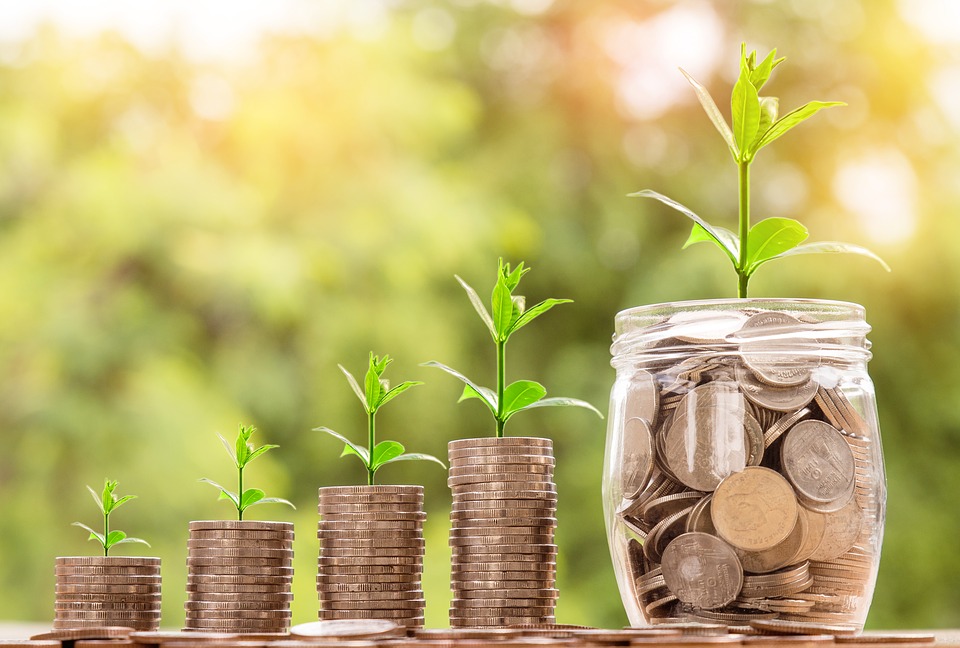Everyone has heard the term inflation once before. Many people know that this is currency devaluation. However, many are no longer aware of how this inflation arises and what its consequences are for the economy. Today, we’ll explain what inflation is and how it affects your personal finances.
With inflation, one distinguishes at least between two categories:
Money is worthless because of the loss in value of the money: this is the case when the money in circulation increases. When the European Central Bank pursues an expansionary monetary policy, more money is put into circulation than goods are produced. The more new money is pressed, the higher the inflation or inflation.
Products and services are becoming more expensive: Demand on the one hand and the number of available resources on the other play a role here. If the demand for goods increases and can no longer be covered by the industry, the price increases. As the cost of producing raw materials or producing products increases, these increases will be passed on to end users.
Reserve
The increase in cash reserves means the money is taken off the market because it can no longer be lent. National banks must keep some reserves at the ECB. As a result, fewer loans are lent and the money supply in the market decreases and thus also the inflation.
Open market operations
The CB buys bonds from various countries to support them financially. This new money flows into the economy. As the money supply increases, so does inflation. This will allow the CB to help economically weak countries. Above all, it is important for the CB to maintain stability in the euro area.
Who benefits from inflation?
Particularly indebted countries and borrowers benefit from inflation. The higher this turns out, the lower the debt burden. Therefore, many states are not actively fighting inflation, as it reduces their national debt. On the other hand, the low-interest rate will also stimulate the economy and thus create new jobs. If economic growth or companies have no money to invest, unemployment also increases.
Credit without interest
Would not it be nice to get a loan without interest? You will only pay your installments at no extra cost.
Who is negatively affected by the interest rate?
If the CB lowers its key interest rate, it is called a so-called low-interest rate phase. If the borrowing rates fall, more loans will be raised. This increases the risk of over-indebtedness or can lead to a debt bubble.
If the CB’s key interest rate rises, interest rates on savings deposits will rise as well. But this also increases inflation and the real interest rate remains low. Savers will, therefore, be unable to build up even with higher interest rates, as inflation pushes down the real interest rate.
Money market accounts and time deposit accounts are thus not suitable for asset accumulation. These savings should only be used to save money for larger short-term investments and not to consume. Point-of-money accounts are also suitable to provide a financial reserve. With financial bottlenecks, you can avoid taking out a loan.
Positive Real Returns – Are They Still?
The low-interest phase has affected especially the savers. Savings accounts have not brought a positive real return for a long time. The question now facing many savers is: where to go with the money? On the one hand, you want to have a certain amount of security in the investment on the other hand; you expect the highest possible return. These two points, however, can no longer be reconciled.
If you want to generate a positive real return, you have to invest in risk-seeking asset classes. However, this does not mean buying crypto-currencies and individual stocks on the fly. Good diversification is still the only way to reduce the risk of loss. Investors should, therefore, invest in investments that allow for good diversification.
ETFs
One of these asset classes is the so-called ETFs. ETF is an exchange-traded index fund that tracks the performance of a group of equities. Investors invest in several companies at the same time. Long-term investment in ETFs has always been positive over a period of approximately 15 years. The important thing about this asset class is keeping ETFs, even if the price suddenly drops. With a long-term investment horizon, prices will rise again, as the trend of the last 100 years shows.
P2P lending
Another way to invest money that offers many diversification options is to invest in P2P credit. Here you invest in consumer loans, real estate loans, corporate loans, etc. and get back a corresponding return. Of course, it is also advisable to inquire about the opportunities and risks in advance. The advantage of P2P loans is the good diversification of various P2P platforms but also the flexible investment period. Investors do not have to tie up their money over several years in order to generate a positive return.
Gold
Gold is one of the most valuable commodities and is considered a safe investment that does not lose value. While you paid just under $ 4,000 for 1 kg of gold in 1974, today you have to spend nearly $ 44,000 on the same amount. Based on this trend, one can see the positive development of the gold price well.
Property, plant, and equipment
Real estate and other tangible assets are also good ways to protect you from currency devaluation. However, the calculation of the return is extremely difficult in this case, since nobody can anticipate the development of the market. Furthermore, the value of real estate is often dependent on external factors, such as environmental catastrophes, on which one has little influence as an investor.
Shares
Financer shows you how stock trading works, where you can buy stocks and what points you need to consider when buying a stock.
Conclusion
Where to invest your money or how to protect yourself from inflation depends on the individual attitude of the savers. Each investor pursues a different savings target with a different investment horizon. It is important, above all, that as an investor, one realizes that the investment in the checking account results in a real yield loss of 2% per annum. If you are aware of this, you can start step by step to invest money in profitable asset classes.
How inflation will develop in the future is difficult to predict. If we are not confronted with any financial crisis in the near future, we can assume that the CB will raise key interest rates. However, as already mentioned, not only the key interest rate influences the level of the inflation rate.








